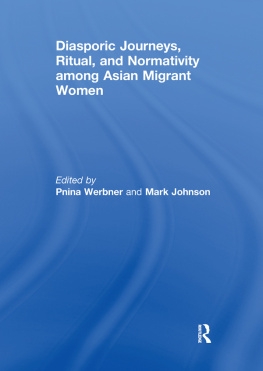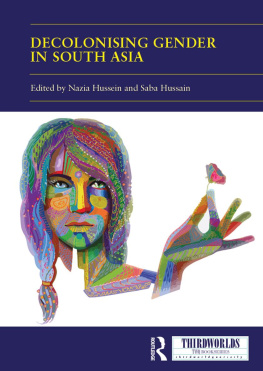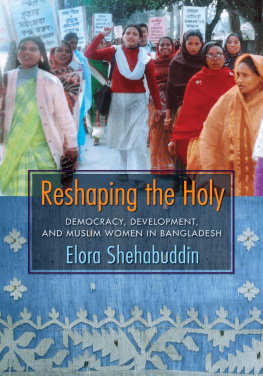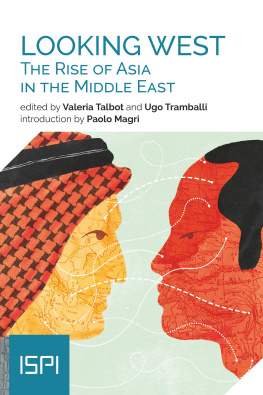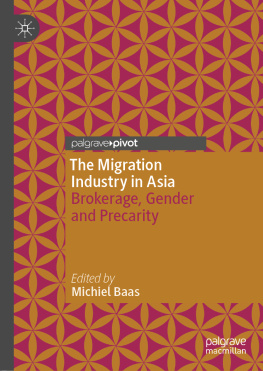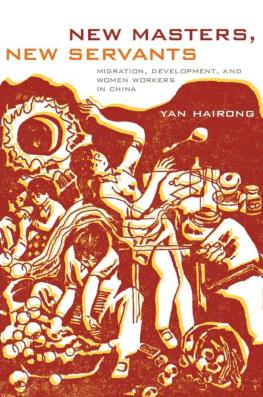Diasporic Journeys, Ritual, and Normativity among Asian Migrant Women
The power of embodied ritual performance to constitute agency and transform subjectivity are increasingly the focus of major debates in the anthropology of Christianity and Islam. They are particularly relevant to understanding the way transnational women migrants from South and South East Asia, Christians, Muslims and Buddhists, who migrate to Asia, Europe and the Middle East to work as carers and maids, reimagine and recreate themselves in moral and ethical terms in the diaspora.
This timely collection shows how women international migrants, stereotypically represented, in the case of Filipinos, as a nation of servants, reclaim sacralised spaces of sociality in their migration destinations, and actively transform themselves from mere workers into pilgrims and tourists on cosmopolitan journeys. Such women struggle for dignity and respect by re-defining themselves in terms of an ethics of care and sacrifice. As co-worshippers they recreate community through fiestas, feasts, protests, and shared conviviality, while subverting established normativities of gender, marriage and conjugality; they renegotiate their moral selfhood through religious conversion and activism. For migrants the place of the church or mosque becomes a gateway to new intellectual and experiential horizons as well as a locus for religious worship and a haven of humanitarian assistance in a strange land.
This book was previously published as a special issue of The Asia Pacific Journal of Anthropology.
Pnina Werbner is Professor Emerita of Social Anthropology at Keele University.
Mark Johnson is Senior Lecturer in Social Anthropology at the University of Hull.
Diasporic Journeys, Ritual, and
Normativity among Asian
Migrant Women
Edited by
Pnina Werbner and Mark Johnson
First published 2011
by Routledge
2 Park Square, Milton Park, Abingdon, Oxon, OX14 4RN
Simultaneously published in the USA and Canada
by Routledge
52 Vanderbilt Avenue, New York, NY 10017
Routledge is an imprint of the Taylor & Francis Group, an informa business
2011 The Australian National University
This book is a reproduction of the The Asia Pacific Journal of Anthropology, vol.11, issues 3 & 4. The Publisher requests to those authors who may be citing this book to state, also, the bibliographical details of the special issue on which the book was based.
All rights reserved. No part of this book may be reprinted or reproduced or utilised in any form or by any electronic, mechanical, or other means, now known or hereafter invented, including photocopying and recording, or in any information storage or retrieval system, without permission in writing from the publishers.
Trademark notice: Product or corporate names may be trademarks or registered trademarks, and are used only for identification and explanation without intent to infringe.
British Library Cataloguing in Publication Data
A catalogue record for this book is available from the British Library
ISBN13: 978-0-415-59201-7
Typeset in Baskerville
by Taylor & Francis Books
Disclaimer
The publisher would like to make readers aware that the chapters in this book are referred to as articles as they had been in the special issue. The publisher accepts responsibility for any inconsistencies that may have arisen in the course of preparing this volume for print.
Contents
Mark Johnson and Pnina Werbner
PART 1: SPIRITUAL SOJOURNERS AND RELIGIOUS JOURNEYS
(a) Ritual and Performance
Josefina Socorro Flores Tondo
Claudia Liebelt
Elizabeth Frantz
(b) Experiences of Conversion, Difference and Transnationalism
Attiya Ahmad
Nicole Constable
Deirdre McKay
(c) Religious Institutions as Havens: Gender and Normativity
Asuncion Fresnoza-Flot
Amira Ahmed
Monica Smith
PART 2: ETHICAL DILEMMAS: CLASS, INTIMACY AND THE LIMITS OF NORMATIVITY
Alicia Pingol
Megha Amrith
Mark Johnson
Martin F. Manalansan IV
Mark Johnson and Pnina Werbner
This issue highlights recent ethnographic work that discloses migrant womens creative engagements with the people and landscapes in the places they migrate to. We challenge a dominant view that construes women international migrants from Asia as docile bodies shaped and constrained by their transnational (re)productive labours. And we reject simplistic contemporary formulations of transnational migration that posit a singular, homogeneous transnational social field. Three key processes, relatively ignored and under theorised are interrogated: diaspora formation, ritual performance and changing normativities. A focus on diaspora encourages us to move beyond a political and economic analysis to consider cultural practices, continuities and discontinuities in migrants relationships with the people and places they travel to, as well as those left behind. A focus on ritual emphasises the significance of religious performance in the making of place and convivial sociality. A focus on normativity foregrounds the ways that peoples affective relationships are performatively reworked and transgressed within and across discrepant diasporic spaces.
This volume draws together recent ethnographic research that challenges conventional assumptions about Asian womens international migration. Whereas the dominant scholarly narrative construes these female migrants as hyperexploited and compliant workers, we focus on the way migrants challenge their abjection in the alternative spaces they create and in which they live richly complex religious and social lives. Although shaped and constrained by the migration context, we argue that overseas female migrants nevertheless create alternative worlds of fun, piety and rights activism. Their social lives are not solely structured by marginality, nor are their salient relationships exclusively transnational. Rather, in their diasporic encounters, migrants creatively engage with the places and landscapes in which they live and labour, sharing conviviality with others like themselves through ritual performance, pilgrimage journeys, mobilisation for rights, religious worship and new intimate relationships. The articles assembled here bear witness to this expansive sociality by disclosing how ritual performances, pious practices and transgressive acts in the diaspora engender novel forms of belonging, enable collective action and defy persistent stereotypes of docile bodies.
Christian Filipinos colonise space dancing through the streets of New Zealands cities with their sacred icons, lovingly imported from home (Tondo 2010). Their compatriots in Israel craft new selves through embodied encounters with the divine in pilgrimage sites in the Holy Land (Liebelt 2010). Buddhist Sri Lankan women undertake ritual vows at Catholic shrines in sacred places in Jordan (Frantz 2010). South Asian women in Kuwait embark on new spiritual journeys, converting from Hinduism and Christianity to Islam as the ambience of daily devotional practices is reflexively embraced (Ahmad 2010). Indonesian and Filipino women in Hong Kong who choose religious conversion renegotiate connections to home while they collectively press for greater rights abroad and expand their cosmopolitan horizons through labour activism (Constable 2010). New Muslim Filipinas in Saudi Arabia grapple with the ethics and morality of second marriages and intimate relationships while following the path of the Prophet and juggling commitments to their transnational families (Pingol 2010). Sri Lankan women migrants in Lebanon pursue erotic adventures as gender outlaws beyond the normalising constraints of state, religious and other international institutions (Smith 2010). Siblings in the virtual village that stretches from Mountain Province in the Philippines to Hong Kong and beyond contest the morality of traditional ritual sacrifice, with religious differences threatening to rupture transnational family relationships (McKay 2010). In Paris, Filipino women reanimate the church as a sacred centre in a secular Parisian cityscape (Fresnoza-Flot 2010), whereas in the central Coptic church in Cairo migrant women of different faith backgrounds migrating into Egypt from Africa and Asia form ecumenical congregations that provide mutual succour and support (Ahmed 2010). Professionals in Singapore and Saudi Arabia consolidate their middle class status as they confront the global image of Filipinos as a nation of servants, while affirming the moral superiority of their religious, class and national identifications as Christian and Muslim Filipinos, respectively (Amrith 2010; Johnson 2010).

